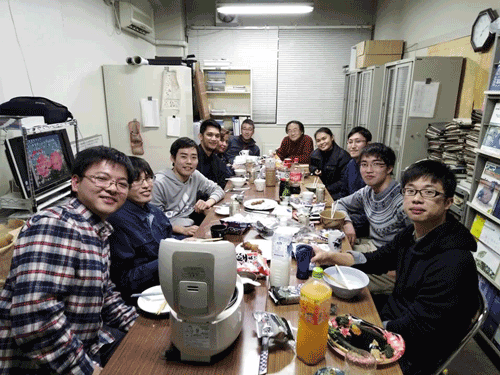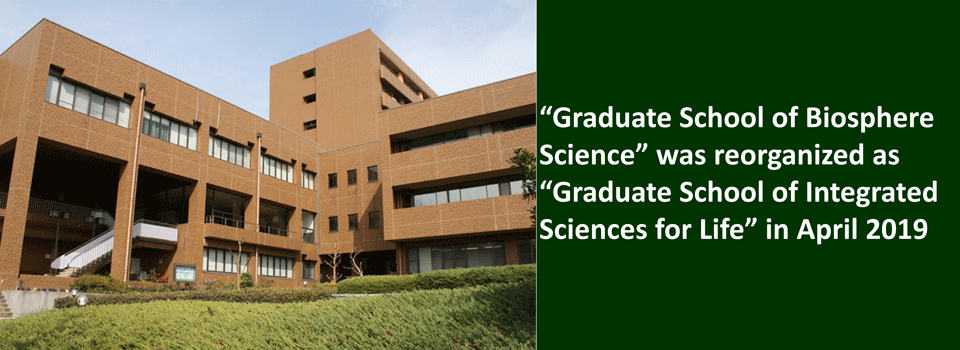Three Filipino researchers engaged in urban biodiversity studies in the large metropolis of Manila came to the Benthos Ecology Lab for training in chironomid collection and identification. Dr. Alma E. Nacua, professor at the Universidad de Manila and project leader was accompanied by Mr. Ken Joseph E. Clemente and Ms. Allen Belle M. Pascual, research team members and were hosted by Professor Koichiro Kawai, Associate Professor Hidetoshi Saito and their students on January 15-18, 2019.
Juveniles of chironomids (common name: midges) are distributed in many aquatic and semiaquatic habitats around the world. Lately, they have been used as biological indicators of water quality due to their predictable responses to certain levels of pollutants, making them very useful for monitoring degraded waterways in large cities. Another group of organisms studied by the research team of Dr. Nacua are the butterflies which are used as indices of urban biodiversity quality. The subject on urban butterflies was presented by Dr. Nacua at a seminar held at the Graduate School of Biosphere Science.
The visit to the Benthos Ecology Lab at Hiroshima University was made possible by a grant provided by the Philippine Commission on Higher Education with the collaboration of host scientists at the Graduate School of Biosphere Science. Last September, Mr. Gaku Mitaku, one of the graduate students of the Benthos Ecology Lab went to the Universidad de Manila and gave a talk on the identification and collection of the Elminidae (riffle beetles) as part of the academic exchange.

Simple welcome party for the Universidad de Manila research team given by the professors and students of the Benthos Ecology Lab. (photo courtesy of K.J. Clemente)

Photo showing training of Filipino researchers on specimen collection by members of the Benthos Ecology Lab along the banks of Kurose River in Higashi-Hiroshima (photo courtesy of K.J. Clemente)


 Home
Home
